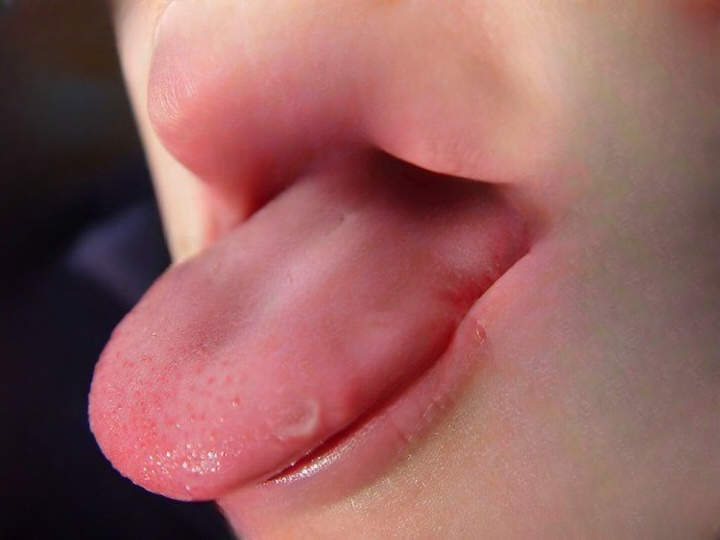Have you ever eaten something that made your mouth feel like it had hair in it?
It’s a weird but surprisingly common feeling. Some foods can cause a fuzzy, prickly, or fibrous sensation on your tongue, gums, or the roof of your mouth, leading people to joke about “growing hair in your mouth.” But what really causes this, and should you be concerned?
This article dives into the science behind this strange sensation, clearing up misconceptions and explaining why certain foods make your mouth feel unusual—without actually causing any hair growth, of course.
The Quick Answer: No, You’re Not Growing Hair in Your Mouth
Biologically, it’s impossible for hair to grow inside your mouth because the soft tissue lining it has no active hair follicles. So no matter what you eat, your body won’t suddenly sprout hair on your tongue or cheeks.
However, certain textures, enzymes, or plant fibers can trick your nerves into feeling like there’s hair in your mouth. Here’s why:
-
Kiwi: Known for its fuzzy brown skin, sometimes eaten with the peel, which can leave tiny hair-like fibers stuck in your mouth. Even peeled kiwi can cause tingling or scratchiness because of an enzyme called actinidin that irritates sensitive tissues.
-
Pineapple: Contains bromelain, an enzyme that breaks down proteins, including the protective layer inside your mouth. This can cause a prickly or “fuzzy” feeling, similar to having hair, especially on the tongue.
-
Peaches and Apricots: Their fuzzy skins can cling to your lips or inside your mouth, especially if eaten whole, causing a lingering scratchy feeling.
-
Rambutan and Lychee: If not fully peeled, tiny bristles or shell fragments can mix with the fruit, feeling fibrous or hair-like when chewed.
-
Corn Silk and Celery Fibers: Corn silk can stick in your mouth like fine threads, and celery’s stringy fibers can give a similar sensation.
-
Undercooked Mushrooms or Eggplants: These vegetables have fibrous textures that, if not cooked well, can feel chewy or stringy—sometimes like chewing hair.
It’s Not Just Texture: Enzymes and Allergies Matter Too
Sometimes the sensation isn’t just from texture but from enzyme reactions or mild allergies.
-
Oral Allergy Syndrome (OAS): This condition causes itching or tingling in the mouth after eating certain raw fruits or vegetables due to cross-reactions with pollen. Common triggers include apples, kiwi, melons, and peaches, causing irritation often mistaken for a physical foreign feeling.
-
Enzyme Reactions: As with pineapple and kiwi, enzymes can irritate mouth tissues, especially in sensitive people, creating a scratchy or fibrous sensation.
Rare Risks: Actual Contamination
Although rare, sometimes food can be contaminated with real hairs or fibers due to:
-
Animal or human hair from poor hygiene or factory mistakes
-
Synthetic fibers from packaging or equipment
-
Threads from gloves or aprons
If you find hair-like material in your food and suspect contamination, report it to the manufacturer or health authorities.
Tips to Avoid This Sensation
-
Peel fuzzy fruits like kiwi, peaches, or apricots if you’re sensitive
-
Cook fibrous vegetables thoroughly to soften fibers
-
Rinse tropical fruits well to remove shell debris or fine hairs
-
Eat acidic fruits in moderation if you have mouth sensitivity
-
Watch for signs of Oral Allergy Syndrome, such as tingling or swelling
When to See a Doctor
Usually, this sensation is harmless and temporary. But if irritation or a fuzzy feeling happens often after eating, consider:
-
Consulting an allergist or dermatologist
-
Keeping a food diary to find triggers
-
Rinsing your mouth with water or saltwater after eating irritating foods
Persistent mouth sensations might sometimes signal conditions like oral thrush or nerve issues, so see a doctor if symptoms last beyond meals.
Conclusion
Although eating some foods may feel like hair is growing in your mouth, it’s actually caused by textures, enzymes, or mild irritants. Knowing which foods trigger these feelings can help you avoid discomfort and enjoy your meals more. And if something feels truly wrong, don’t hesitate to seek medical advice.

